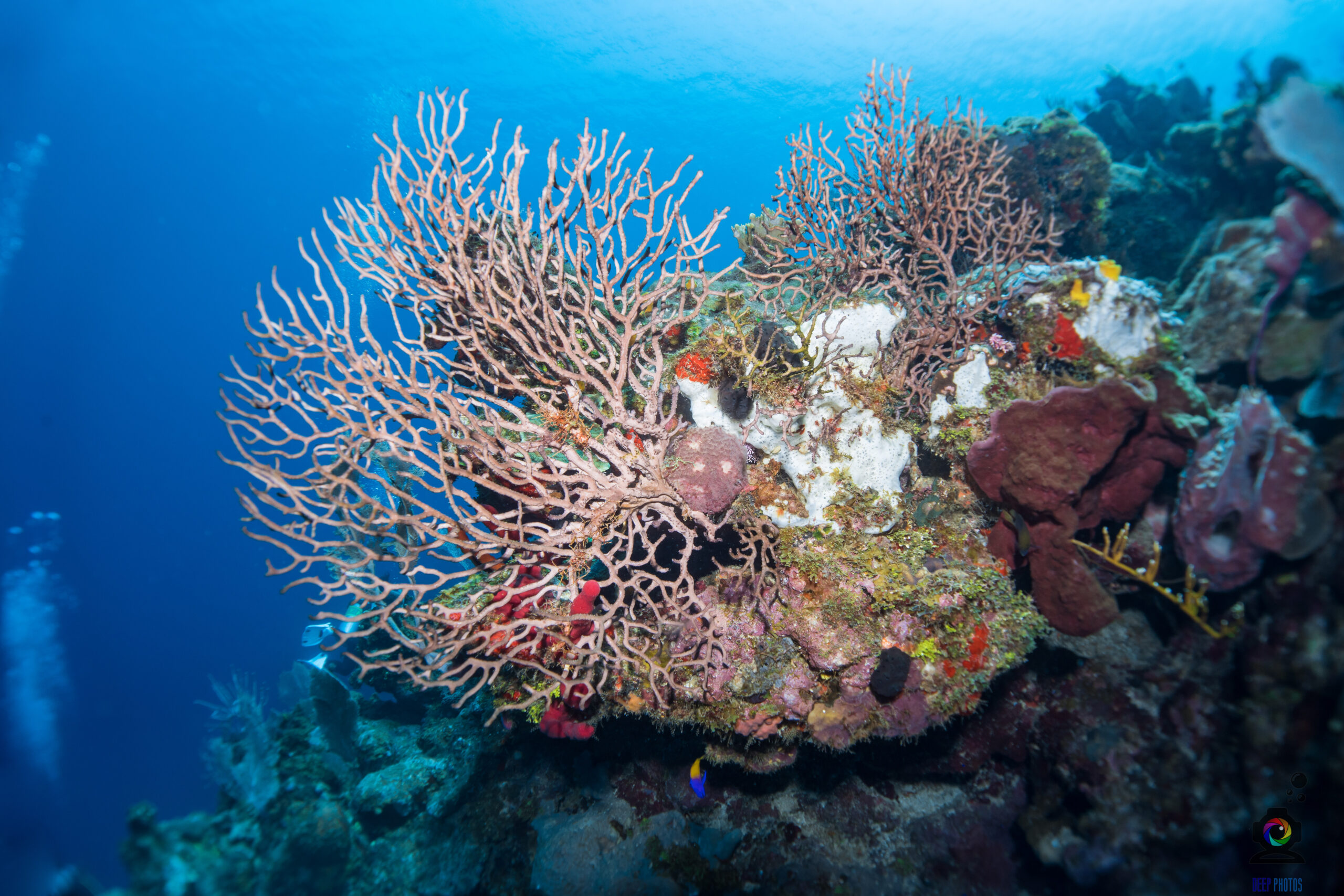We recently held our annual State of the Reef Address, which highlighted the urgent need for action to protect coral reefs. Heather Starck, the Executive Director of the Coral Reef Alliance, emphasized the devastating impact of climate change, overfishing, pollution, and other human activities on coral reefs around the world. Coral reefs are critical ecosystems that provide food and livelihoods for millions of people; their preservation is vital.
State of Our Reefs
Heather stressed that coral reefs are still in decline. This means that nearly 1 trillion dollars annually in food, tourism, and coastal protection are in jeopardy. Our science is telling us that 75% of reefs are currently threatened and this figure is anticipated to climb to 90% by 2030. “We’re also seeing that Stony Coral Tissue Loss Disease in the Western Caribbean is spreading at 155 meters per day” according to Heather and the CORAL team scientists. This is a highly lethal disease that started in 2014 and continues to spread rapidly across the Caribbean.
While there’s urgency to act, the team at CORAL has reason for hope. Starck shared with us that, “for example, 341 commitments worth nearly $20 billion were recently made at the Our Ocean conference this month in Panama including funding for expanding and improving marine protected areas and biodiversity corridors.” We find hope in the fact that 193 countries within the UN agreed to the first of its kind high seas treaty to protect 30 percent of our lands and Oceans by 2030.
Our Approach
Starck described CORAL’s science-based approach for addressing the needs of the world’s coral reefs. This includes supporting resilient coastal communities, reducing water pollution, and promoting sustainable fisheries – all of which we believe will allow coral reefs to adapt and survive as they face global climate change.
Next Dr. Helen Fox, CORAL’s Conservation Science Director, shared exciting updates on the progress made by her team in advancing the science around coral adaptation and evolution. This is in hopes that reefs to adapt to the environmental changes brought on by climate change. Dr. Fox’s team has been working with the Allen Coral Atlas, a new resource that maps the world’s coral reefs and monitors their threats to provide actionable data and a shared understanding of coral ecosystems. CORAL is part of the Atlas partnership and is leading the coordination of the field component of coral bleaching monitoring program. One day, we hope to that helps to improve the detection of bleaching events from space.
A Visit to CORAL’s Field Sites
The most engaging addition to the State of the Reef Address this year was live video streaming to field sites in both the Western Caribbean and Hawaii.
Jennifer Myton, CORAL’s Conservation Program Director, and Francis Lam, Executive Director of the Roatan Marine Park in Honduras, spoke about their work in the region. One of the main programs at the Roatan Marine Park is the patrol program, which has five boats of rangers who survey this protected marine zone and deter illegal fishing and other activities that counteract local community efforts to improve the environment. CORAL’s holistic approach to supporting local organizations has made a real difference in coral reef health in the Western Caribbean, as evidenced by the growth and impact of the Roatan Marine Park.
Next we went to the Mauka (mountains) of Maui where our Hawaiian Islands Program Coordinator, Makayla Richmond, and team are working on sedimentation, a critical issue in the Waikoli watershed of West Maui. They are decommissioning agricultural roads that run parallel to stream gulches and installing plants to trap the sediment. Our approach is intended to be a long-term, nature-based solution to the problem of stormwater run-off depositing tons of sediment suffocating the corals.
What’s Next for CORAL?
The Coral Reef Alliance plans to scale up its work to meet the growing needs of coral reefs, and the organization depends on the support of its community to succeed. The Chair of the Board, Kirby Ryan, expressed gratitude to everyone for their ongoing support and involvement in the Alliance’s work despite the challenges of the pandemic. Looking forward, we plan to continue urgent and important work to protect and restore coral reefs globally, with the hope of gaining more support from people who are interested in preserving this critical natural wonder that supports 25% of ocean life and hundreds of millions of people.
CORAL’s 2023 State of the Reef Address has emphasized the pressing need for action to protect coral reefs. Through the work of scientists, conservationists, and local communities, we hope to preserve these critical ecosystems for future generations.
Interested in attending State of the Reef next year? Sign up for CORAL’s newsletter, the e-current.
